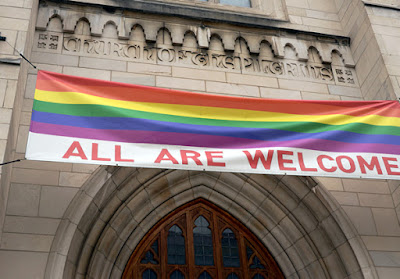Letter from David Warkentin to the BCMB and Canadian Mennonite Brethren Conference executives; posted with David's permission.
March 22, 2021
Greetings BCMB Executive, CCMBC Executive, and NFLT,
I’m writing in response to the recent BCMB background explanation regarding Artisan Church (Convention 2021 Recommendations).
As a credentialed BCMB pastor, member of a BCMB church (The Life Centre), and faculty member at Columbia Bible College, I take seriously my participation in our shared ministry as a family of churches in BC and Canada.
Additionally, my teaching and research centres around dynamics of church and culture, examining the complexities of theological praxis in the 21st NA church.
This situation of Artisan and BCMB is certainly complex and I am praying for wisdom and unity in this moment for our conference. It is in this spirit that I offer these comments on the matter.
And to clarify, this statement reflects my personal views and do not represent either Columbia Bible College or The Life Centre in any official capacity.
I appreciate the inclusion of explanation with the 2021 Convention recommendations; treating such matters of mere agenda items neglects the relational nature of the matter. Clarity and care with and for one another is vital for our continued unity as MB’s.
I am concerned, however, that this statement unevenly represents the relationship between BCMB leadership and Artisan Church.
BCMB leadership is described in a way that places them on the moral high ground for due process, giving the impression that where BCMB was proactive in the past 5 years, Artisan neglected discernment with BCMB leadership.
There is reference to MB resources for discernment, but what specific resources have the listed groups provided? And how does BCMB know Artisan didn’t include MB theological resources in discernment?
Nelson Boschman is a Columbia alumni and former faculty member; he has clearly been shaped by MB theology and praxis.
Additionally, there is mention of BCMB requests to participate in the process, but this is a vague statement. What was the suggested involvement? BCMB Board members? PMC members? BCMB staff? And, what was the posture of this involvement? Listening? Teaching? Exhortation?
These questions highlight how the ambiguity of the statement ends up providing a one-sided summary that assumes just because Artisan came to a conclusion outside of the MB Confession of Faith that their due process as a BCMB church was faulty.
I’m not saying Artisan’s conclusions don’t warrant difficult conversation and due process in our BCMB family, but the dismissive tone of this summary towards Artisan and their transparency in practicing communal discernment as a BCMB congregation is disheartening to read.
This dismissiveness neglects that Artisan is still presently a member of the BCMB family. Such a posture towards our sisters and brothers in Christ is regrettable and lamentable at best, and divisive and controlling at worst.
It is not clear how this process has exhibited “love, mutual submission, and interdependence” (MB Confession of Faith, Article 6). The recent Posture Shift event, sponsored by BCMB, invited a tone of listening and respect amidst different opinions on LGBTQ+ inclusion.
Can such a posture be applied to a denominational context? Can Artisan’s position be viewed as such for a time of communal discernment for a way forward? Can fellowship (i.e. koinonia) be maintained as BCMB churches strive together to bear witness to the good news of Jesus in the complexity of our given contexts (Phil. 1:27ff)?
The tone of this statement implies that such fellowship is not a given, not a gift received by the unity of the Spirit at work in our midst (Eph. 4:1-6), but instead is controlled by the power of BCMB leadership structures in which short-term uniformity appears more important than the hard work of long-term unity.
As a result, Artisan’s difference is automatically treated as institutional deviation instead of a relational matter in which one party (i.e. Artisan) has discerned faithfulness in a certain direction that would necessitate relational discernment with the household of God’s people that make up the BCMB body of Christ (Rom. 12:5; Eph. 2:19-22).
This statement reads as hierarchical discipline not relational discernment. The 10+ years of faithful presence for Artisan Church in Vancouver, including the faithful witness and leadership of Nelson Boschman in the BCMB family, deserve a better hearing as a member of this family.
With these concerns in mind, my main request is that BCMB slow down the process for releasing Artisan from BCMB membership and take time once COVID-19 restrictions ease for in-person discussion and discernment for a way forward, choosing patience in dealing with this matter.
At the same time, I recognize that Artisan’s priority, as it has been throughout this process, is their ministry presence in Vancouver, so I understand if they prefer to be released rather than serve as a lightning rod for a controversial MB matter of communal discernment. I respect their discernment for how to best participate in months ahead.
To conclude, my study of trends in church and culture indicate that Artisan’s departure will not be the end of MB congregations actively discerning how to understand and practice LGBTQ+ inclusion in biblically faithful contextualized ways.
This issue is not limited to one church that can be quickly released from BCMB membership; to process Artisan’s position and practice with such brevity avoids the realities facing Canadian MB churches in the years to come.
How we respond in this moment will set the tone for the future unity of MB churches regarding LGBTQ+ engagement.
No doubt, as MB leaders, you already feel the weight of these matters. I hope you receive this letter as my contribution to share in this weight of communal discernment as an MB family.
Peace,
David
Warkentin
See other stories on this topic from Anabaptist World.
Canadian Mennonite Brethren talking about LGBTQ+ inclusion (March 12)
Asked to repent, LGBTQ+ Mennonite Brethren church withdraws from BCMB (March 16)
Open Letter Urges Canadian MB Dialogue on LGBTQ+ Inclusion. (March 30)

